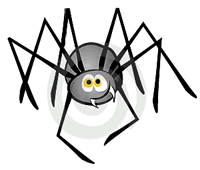Today’s post comes from an email sent in by James Eglinton.
I have met many non-native English speakers who speak English with no discernible non-native accent. I know Dutch people (with Irish spouses) who can pass themselves off as Irish in Ireland. I know French people who speak faultless British English, I have heard a German speaking Scottish Gaelic and I struggled to tell that he wasn’t a native speaker. I also know various non-native French speakers who have to convince French people that they really are foreigners. I know Scots who can pass themselves off as Germans in Germany. Wherever you go in the world, you meet non-native English speakers with perfect American accents …
In my own situation, I grew up with English and Gaelic, and also learned French while living in Paris. When I was living there, people would ask if I was Belgian or Swiss. My French accent wasn’t quite native enough for them to think I was French, but I spoke it well enough that they generally thought I was a native speaker from somewhere else in French-speaking Europe.
I now live in the Netherlands and have learned Dutch to fluent non-native level. Thanks to my Gaelic background, Dutch gutturals don’t pose any major problems, but although I speak Dutch all day at work, I have found trying to acquire a decent native-like accent astonishingly difficult. I have found Dutch easy to speak well, but thus far impossible to speak perfectly. I regularly ask Dutch people, “Have you ever met a foreigner who speaks such good Dutch that you didn’t know they were foreign?” The universal answer is, “No”.
I’m aware that Dutch has a couple of very tricky features (the klemtone [misplaced stress] and the system of de and het definite articles) that make acquiring native level fluency very difficult (or perhaps impossible?), but I wonder if any Omniglot readers know non-native Dutch speakers who speak faultless Dutch.
If not, why is Dutch so seemingly impossible to learn at that level? Are there sociological factors involved (i.e. very few people learn Dutch, many millions learn English/French etc, which creates a more challenging setting for Dutch learners) or is Dutch just uniquely hard to master due to some subtle grammatical nuances?
